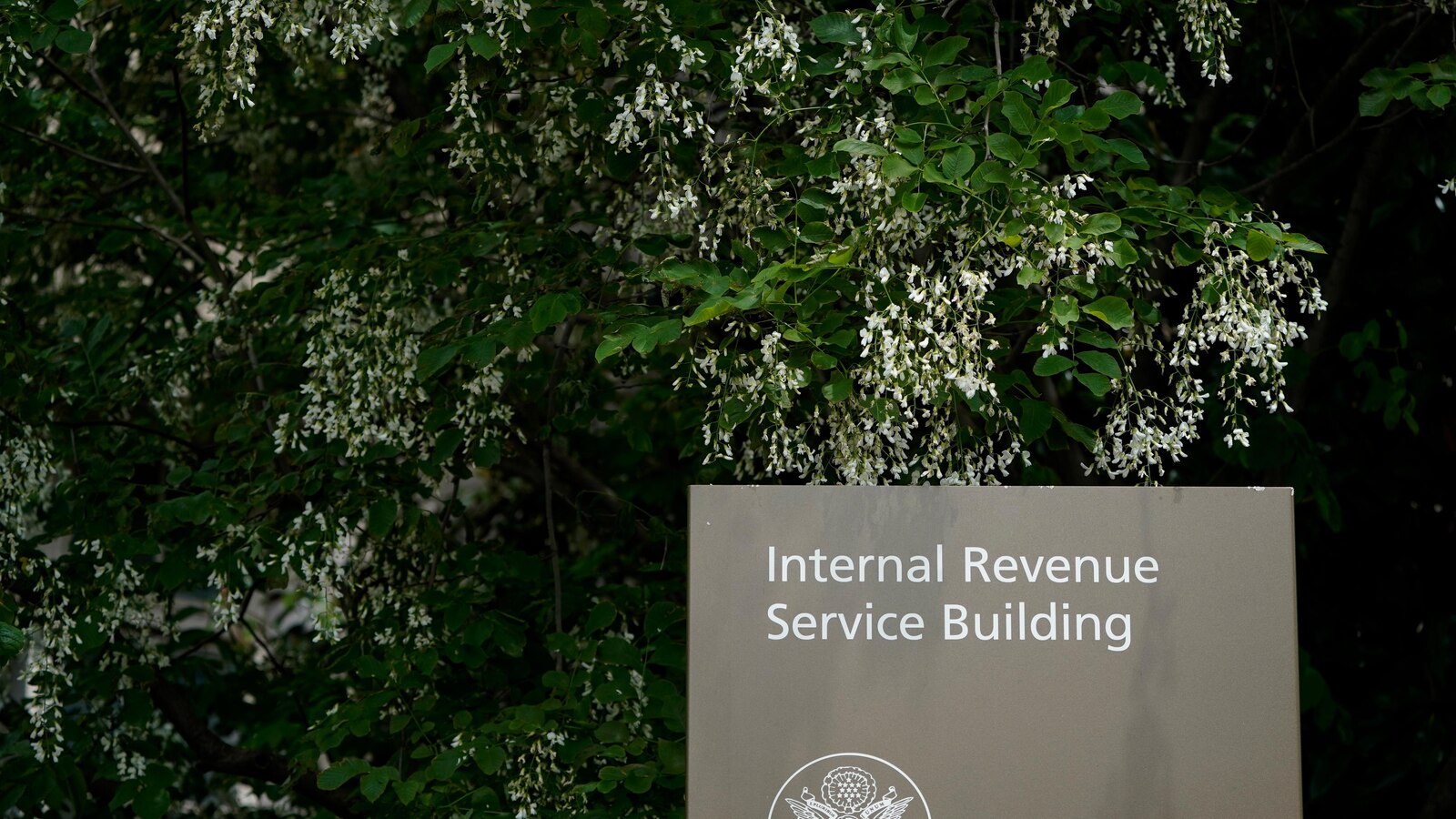
WASHINGTON — The IRS announced Thursday that it has collected $1 billion in back taxes from high-wealth tax cheats — a milestone meant to showcase how the agency is making use of the money it received as part of the Biden administration’s signature climate, health care, and tax package signed into law in 2022.
Part of the push for public awareness of high-wealth tax collections is a growing recognition by agency officials that a potential Republican takeover of the White House and Congress could mean massive future budget cuts for the IRS. Showing the public how much work the IRS is getting done is meant to give the much-maligned agency a more sympathetic image.
As part of that effort, last year the IRS launched a series of initiatives aimed at pursuing high-wealth individuals who have failed to pay their tax debts. The IRS says the campaign is focused on taxpayers with more than $1 million in income and more than $250,000 in recognized tax debt.
“President Biden’s Inflation Reduction Act is increasing tax fairness and ensuring that all wealthy taxpayers pay the taxes they owe, just like working families do,” Treasury Secretary Janet Yellen said in a statement.
In June, the Treasury proposed a rule and guidance that includes plans to essentially stop “partnership basis shifting” — a process by which a business or person can move assets among a series of related parties to avoid paying taxes. That could raise more than $50 billion in revenue over the next decade, Treasury said.
Other initiatives announced in the past year have included pursuing people and businesses that improperly deduct personal flights on corporate jets and collecting back taxes from delinquent millionaires.
Eugene Steuerle, a fellow and co-founder of the Urban-Brookings Tax Policy Center, said if the IRS “can show they’re having a positive impact and it’s not impacting average American taxpayers, there would be more public support for this activity and the agency.”
“Any increase in government investigations appears like an intrusion,” Steuerle said. He added that if the IRS can show taxpayers how it is conducting its investigations, the broader public may become less fearful of an audit.
Republicans have meanwhile threatened a series of cuts to the IRS, sometimes successfully.
House Republicans built a $1.4 billion reduction to the IRS into the debt ceiling and budget cuts package passed by Congress in the summer of 2023. The deal included a separate agreement to take $20 billion from the IRS over the next two years and divert that money to other non-defense programs.
House Republicans’ fiscal year 2025 proposal out of the Financial Services and General Government Subcommittee in June proposes further cuts to the IRS in 2025, and would cut funding to the Direct File program that is being expanded to allow Americans to file their taxes directly with the IRS.
Demian Brady, vice president of research for the National Taxpayers Union Foundation — says the IRS still targets non-high-wealth partnerships for audits.
“It should also be noted that nearly two-thirds of audits initiated in 2023 were on those making less than $200,000,” Brady said.
The Internal Revenue Service (IRS) recently announced a major victory in its efforts to collect unpaid taxes from high-wealth taxpayers. The agency reported that it has successfully collected $1 billion in back taxes from individuals and businesses with significant assets and income.
This achievement is a significant milestone for the IRS, which has been ramping up its enforcement efforts in recent years to target wealthy taxpayers who may be avoiding their tax obligations. The agency has been focusing on high-net-worth individuals and corporations that engage in complex tax schemes and strategies to reduce their tax liability.
The $1 billion in back taxes collected represents a substantial sum of money that will now be added to the federal government’s coffers. This infusion of funds will help support essential government programs and services, including education, healthcare, infrastructure, and national defense.
The success of the IRS in collecting these back taxes is a testament to the agency’s commitment to enforcing tax laws and holding all taxpayers accountable for paying their fair share. The IRS has been using a variety of tools and tactics to identify and pursue high-wealth taxpayers who are not complying with their tax obligations.
One of the key strategies employed by the IRS is the use of data analytics and technology to identify potential tax evasion and non-compliance. The agency has access to vast amounts of financial data and information that allow it to track down individuals and businesses that may be underreporting their income or engaging in other forms of tax fraud.
In addition to leveraging technology, the IRS has also been increasing its enforcement actions, including audits, investigations, and legal actions against high-wealth taxpayers. These efforts have helped the agency recover significant amounts of unpaid taxes and deter others from engaging in similar tax avoidance schemes.
The successful collection of $1 billion in back taxes from high-wealth taxpayers is a clear signal that the IRS is serious about cracking down on tax evasion and ensuring that all taxpayers pay their fair share. This achievement should serve as a warning to those who may be tempted to skirt their tax obligations – the IRS is watching, and it will not hesitate to take action against those who try to cheat the system.
Overall, the IRS’s success in collecting $1 billion in back taxes from high-wealth taxpayers is a positive development for the federal government and for all taxpayers who play by the rules. By holding wealthy individuals and corporations accountable for paying their taxes, the IRS is helping to ensure a more equitable and just tax system for all Americans.


